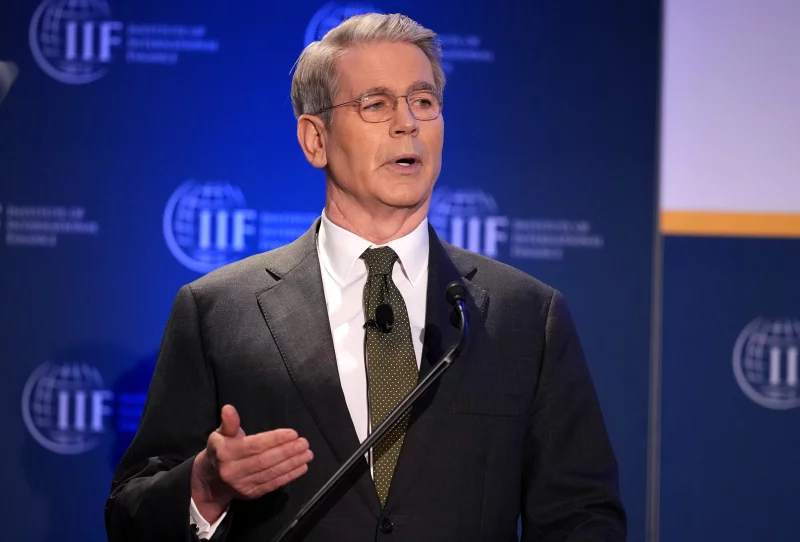U.S. stock markets advanced for a second straight session on Wednesday following statements from President Donald Trump indicating he would not remove Federal Reserve Chair Jerome Powell. The gains were also fueled by optimism that the administration might relax some of the trade tariffs currently imposed on China.
By midday, the Dow Jones Industrial Average had climbed roughly 500 points, a gain of more than 1.3%, after jumping over 1,000 points earlier in the day. The S&P 500 also saw significant growth, rising nearly 2%, while the tech-heavy Nasdaq surged by almost 3%. These consecutive rallies follow a turbulent period for the markets, intensified last week when Trump publicly called for Powell’s dismissal, deepening investor anxiety in the midst of ongoing global trade tensions.
Trump’s comments on Tuesday helped settle some of that unease. He stated that he had “no intention” of firing Powell, whose current term as Fed chair runs through next year. Simultaneously, hopes were revived that the U.S. may soften its hardline trade stance toward China.
“There’s a real opportunity for a substantial deal here,” Treasury Secretary Scott Bessent remarked during the IMF and World Bank spring meetings in Washington, D.C. He urged Chinese officials to pivot their economic strategy away from an export-heavy model and encourage greater domestic consumption. According to Bessent, such a shift could help relieve strain in the ongoing trade dispute.
China has long been criticized for prioritizing exports to bolster its economy while making it difficult for other nations to access its market. “If they want to rebalance, let’s do it together,” Bessent added, signaling willingness for cooperative reform.
Still, despite the recent market uptick, many investors remain on edge. The relationship between Trump and Powell has been contentious for much of the president’s term—even though it was Trump himself who appointed Powell to lead the central bank. Just last week, the president called on the Federal Reserve to cut interest rates, a move made more complicated by the inflationary pressures caused by his own tariff policies, which have driven up the price of imported goods.
While Trump’s assurance that Powell will remain in his role helped ease fears of immediate political interference, concerns persist that the president may continue trying to influence monetary policy, which could jeopardize the central bank’s independence.
Meanwhile, although the administration claims to be actively negotiating with multiple countries on trade, many of the aggressive tariffs introduced under Trump’s leadership remain in effect—including extra duties of up to 145% on Chinese imports.
These sweeping trade measures have sparked fears that foreign investors are beginning to lose trust in the U.S. market, and that the global economic landscape may be heading for a fundamental shift.
In his address to international leaders, Bessent stressed that the U.S. remains committed to global engagement. “Let me be clear: America First does not mean America alone,” he stated. “On the contrary, it’s a call for stronger cooperation and mutual respect among global trading partners.” He emphasized that the U.S. intends to strengthen its leadership within international institutions like the IMF and the World Bank.
At the same time, Bessent called on these institutions—established in the aftermath of World War II—to remain focused on their original mandates: supporting economic growth and promoting balanced trade. He warned against expanding their responsibilities into areas such as climate change, which he said represents a distraction from their core objectives.
As part of this emphasis on economic development, Bessent advocated for the World Bank to increase funding for energy infrastructure projects in developing nations, specifically including nuclear and fossil fuel initiatives.
“History teaches us a straightforward lesson,” Bessent said. “Where there is energy abundance, there is economic abundance. That’s why the World Bank should embrace an all-of-the-above strategy when it comes to energy development.”







